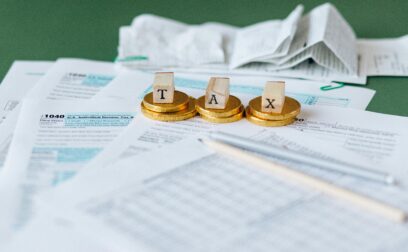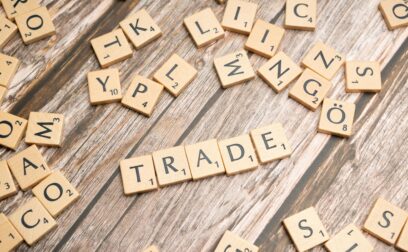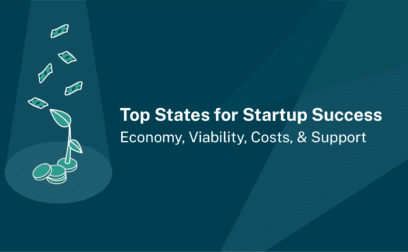TABLE OF CONTENTS
Small businesses who need help during a crisis may be able to get help from the U.S. Small Business Administration (SBA) with an Economic Injury Disaster Loan (EIDL). EIDLs usually have simplified application processes so that small businesses can get financial help fast during times of crisis, like the COVID-19 pandemic or natural disasters.
If you applied for an SBA EIDL loan and it was denied, you may wonder why and what you can do about it.
Read on for details on common reasons for SBA disaster loan denials, appeal processes and alternative funding options for your small business.
Page written by Kat Cox. Last reviewed on August 12, 2024. Next review due October 1, 2026.

EIDL loans can help small businesses with long-term, low-interest loans if they’ve suffered economic losses due to a declared disaster in their region. Most commonly associated with the COVID-19 pandemic, other disasters like floods, earthquakes or hurricanes may make small businesses in a declared disaster zone eligible for the loan.
However, not every business will qualify for an EIDL from the SBA just because they suffered loss of revenue or damage during a declared disaster. Lenders will still do their due diligence to ensure that a business qualifies for a loan and they won’t approve every business that applies.
Some of the most common reasons that an SBA disaster loan was denied include:
A financial institution or the SBA may consider you unable to repay a loan based on your financial situation. If your business’s cash flow isn’t sufficient or your credit utilization is too high (you’re using too much of your available credit limit), they may deny your loan.
Credit history is one of the main ways that a bank or financial institution determines your creditworthiness, or likelihood that you’ll be able to replay a loan. Many elements go into your credit history, including your personal credit score, your business’s repayment history with vendors and how long your company has been in business.
Your EIDL application may be denied if your credit score is lower than 680, you have any delinquencies or bankruptcies in your past or your business is new.
Most SBA loans, including those in the EIDL program, require collateral if you’re applying for more than $25,000. Many businesses use their commercial property as collateral for a loan, which can be a problem if your property was damaged in a disaster.
Yes, you can appeal an SBA disaster loan denial under certain circumstances. Follow these steps to appeal your EIDL denial:
If you receive another denial from the DAPDC, there’s still hope for an appeal with the director of the DAPDC. This is considered a secondary appeal and you must send it in within 30 days of receiving your denial notification from the DAPDC. If the director declines your appeal, this is usually a final decision. However, you can wait six months and apply for a new EIDL loan.
Be aware that the SBA is no longer accepting appeals on COVID-19 EIDLs.
If your EIDL is denied and you don’t win the appeal, you can consider applying again after six months have passed. This can be a good time to improve your credit score, cash flow and financials, which can make it more likely that your business will be approved. Of course, six months is a long time to wait if your company can’t function because of damages from a disaster.
Here are a few SBA disaster loan alternatives to consider for your small business:
If you’ve been formally denied by the SBA for a disaster loan, the silver lining is that this makes your eligible to apply for a FEMA grant. These grants are made available to those impacted by disasters and can be used for business purposes such as vehicle repairs and equipment or tool replacement. You can also use them for personal expenses like hospital or medical bills, funeral expenses, replacing household items (including clothing), moving and storage and more.
FEMA grants also don’t have to be repaid, which means you don’t have to worry about interest or repayment terms. This can be extremely helpful to small business owners recovering from a disaster.
A business line of credit allows you to spend money up to a set credit limit and repay it over time, usually through monthly payments. You can use this money for regular business expenses including commercial mortgages or rent, equipment purchases, payroll, inventory and more.
Unlike a loan, you only pay interest on the money you use in your line of credit. You may also be able to use your available credit again as you pay off the money you spend, much like with a credit card. It’s important to note that lines of credit tend to have higher interest rates or annual percentage rates (APRs) than loans, so it’s a good idea to pay off your balance as quickly as you can.
Term loans or traditional loans may be available to your business through banks, credit unions or other financial institutions. Of course, if your loan application for an EIDL was denied, it may be difficult to find a term loan that your business will qualify for.
However, some online or alternative lenders are more willing to lend to newer businesses or those with poor credit history than banks or credit unions. Usually these loans come with shorter repayment terms or higher interest rates to compensate for the risk the lender takes out, but they also tend to fund faster and have shorter application processes than other loan types.
Many financial institutions work specifically in equipment financing, which can help you get funds to purchase or lease equipment. If you operate in a specific industry like manufacturing, farming or trucking, there are many companies that work to help small businesses find financing in these areas.
With invoice financing, you basically use any unpaid invoices as collateral to get a lump sum of cash from a financing company. You then repay the money in a similar manner to a term loan in set increments with interest. This can be a good idea for businesses that have long repayment terms for their customers but need cash upfront.
If you’re looking for an SBA loan, term loan or any other type of financing, download Swoop to find the right one for your business. Simply answer a few questions about your business and your financing needs and Swoop will match you with the right funding option.
Related pages
Daire made it happen! There is no doubt that Swoop sped up the process and found lenders that worked to our time scale rather than the other way round
Hocque Figureoa
Joint owner, F45 Virginia
Swoop was actually very helpful in helping us get our initial fundraising in place. Swoop was able to connect us with investors, with grant financing options and debt financing options.
Viler Lika
Founder, SingleKey
Pedja was amazing. Super supportive, understanding of our needs and wasn't pushy at all. We've been going back and forth with Swoop for over a year inquiring about different financing options and they were patient until we were ready!
Chris Skeates
F45 Multi-studio owner
Join the 95,000+ businesses just like yours getting the Swoop newsletter.
Free. No spam. Opt out whenever you like.
Kingfisher Way, Silverlink Business Park, Newcastle upon Tyne, NE28 9NX, UK
View in Google Maps35 Bull Street, Lewis Building, Birmingham B4 6AF, UK
View in Google MapsAberystwyth Innovation and Enterprise Campus
Gogerddan Campus
Aberystwyth University
Ceredigion
SY23 3EE
Dogpatch Labs, The CHQ Building, Custom House Quay, Dublin, Ireland
View in Google MapsSuite 801, Level 8, 84 Pitt Street, Sydney, NSW 2000, Australia
View in Google Maps43 W 23rd St, New York, NY 10010, United States
View in Google Maps21 Dreyer Street, Cape Town, South Africa, 7708
View in Google MapsClever finance tips and the latest news
Delivered to your inbox monthly
Join the 95,000+ businesses just like yours getting the Swoop newsletter. Free. No spam. Opt out whenever you like.




